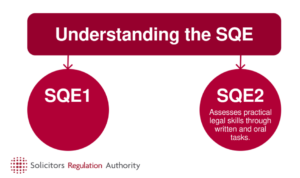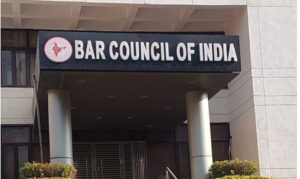Many Indian Lawyer and Advocate ask themselves: How to become a solicitor uk step by step? Becoming a solicitor in the UK is an attractive and rewarding career path for many Indian lawyers. With a diverse legal landscape and numerous opportunities, the UK offers a promising environment for legal professionals.
This guide explains the steps Indian lawyers must take to become solicitors in the UK. It covers the Solicitors Qualifying Examination (SQE), exemptions, and tips for effective preparation. Get to know the best SQE1 prep course for Indian lawyers.
Understanding the SQE exam

The SRA has introduced the SQE as the new way to become a solicitor in the UK. The SQE ensures a uniform standard of competence for all aspiring solicitors. It consists of two stages:
- SQE1: Tests functioning legal knowledge through multiple-choice questions.
- SQE2: Assesses practical legal skills through written and oral tasks.
Exemptions for Indian Lawyers
Indian lawyers can skip SQE2 by passing only SQE1 to become solicitors in the UK. The exemption process requires specific documentation and qualifications.
Here’s how Indian lawyers can apply for this exemption:

- To qualify, you must have passed the All India Bar Exam. You also need a professional qualification from your local Bar. This could be an admissions certificate or a certificate of good standing. If you qualified before 2010, you only need to provide evidence of your professional qualification.
- Legal Work Experience: Submit a reference showing you have at least two years of legal work experience post-qualification as an Indian advocate.
- Referee’s Professional Qualification: Include proof of your referee’s professional qualification, like an admissions certificate or a certificate of good standing.
Learn more in this video: https://www.youtube.com/watch?v=HBYjClRcgHU
- Create a mySRA Account and update your legal qualifications and jurisdictions in your mySRA profile before applying. You must complete this step for us to process your application.
- Application Fee: The application fee for an SQE2 exemption is £265. The SRA will review your application and respond within 180 days.
How to Prepare for SQE1
Preparing for SQE1 is crucial for Indian lawyers aiming to become solicitors in the UK. Here’s a structured approach to get ready:
- Understand the Exam Format: SQE1 focuses on functioning legal knowledge, testing candidates through multiple-choice questions. Familiarize yourself with the exam format and syllabus.
- Enroll in a Preparation Course: Enrolling in a comprehensive SQE1 preparation course is vital. FQPS offers the best SQE1 preparation course tailored for Indian lawyers. Their course includes detailed study materials, mock exams, and personalized guidance to ensure success.
- Study Regularly: Create a consistent study schedule. Allocate specific hours each day for focused study sessions, covering different topics in the SQE1 syllabus.
- Practice mock exams regularly to get used to the question format and time management with our SQE1 FLK1 and FLK2 Mocks. This practice helps identify weak areas that need more attention.
- Join Study Groups: Engaging with fellow aspiring solicitors can provide additional support and motivation. Join sqe study groups or forums to discuss topics and share resources.

Why FQPS Provides the Best SQE1 Preparation Course
FQPS stands out as the premier provider of SQE1 preparation courses for Indian lawyers. Here’s why:
- Tailored SQE Revision Notes: FQPS offers a curriculum specifically designed for Indian lawyers, addressing the unique challenges they might face.
- Expert Instructors: Learn from experienced legal professionals who understand the nuances of the SQE1 exam.
- Comprehensive Resources: Access a wealth of study materials, including textbooks, online resources, and practice questions.
- Practice tests and feedback help you see how you’re doing and get better.
- Flexible Learning Options: Choose from various learning modes, including online and in-person classes, to suit your schedule and preferences.
For more information, visit FQPS SQE1 Preparation Course.
Conclusion
Becoming a solicitor in the UK is a dream for many Indian lawyers. The process, though rigorous, is achievable with the right preparation and resources.
Indian lawyers can become solicitors in the UK by following a few steps. They need to learn about the SQE exam, which is required for qualification. They can also get exemptions based on their previous qualifications and experience. They should also think about taking a preparation course, like the one provided by FQPS, to improve their chances of success.
FAQs: People also ask …
Q: How to become a solicitor in the UK step by step?
A:
- Obtain a degree (law or non-law).
- Complete the SQE1 exam.
- Gain Qualifying Work Experience (QWE).
- Pass the SQE2 exam.
- Meet the character and suitability requirements set by the SRA.
Q: What is a solicitor?
A: A solicitor is a legal professional who provides expert advice to clients, represents them in legal matters, and prepares legal documents. Solicitors can work in various areas of law, including criminal, family, corporate, and property law.
Q: What is the SQE?
A: The Solicitors Qualifying Examination (SQE) is a standardized assessment introduced by the SRA to ensure consistent competence among aspiring solicitors in the UK.
Q: Can Indian lawyers apply for exemptions?
A: Yes, Indian lawyers can apply for an SQE2 exemption, which means they only need to pass SQE1 to qualify as solicitors in the UK.
Q: How can I prepare for SQE1?
A: To prepare for SQE1, understand the exam format, enroll in a preparation course like the one offered by FQPS, study regularly, practice mock exams, and join study groups.
Q: Why choose FQPS for SQE1 preparation?
FQPS offers a personalized curriculum and experienced teachers. They also provide helpful resources, practice exams with feedback, and flexible study options. This makes it the top choice for Indian lawyers getting ready for SQE1.
Q: What are the benefits of becoming a solicitor in the UK?
A: Becoming a solicitor in the UK opens up diverse career opportunities, a chance to work in a dynamic legal environment, and the ability to practice law at an international level.


